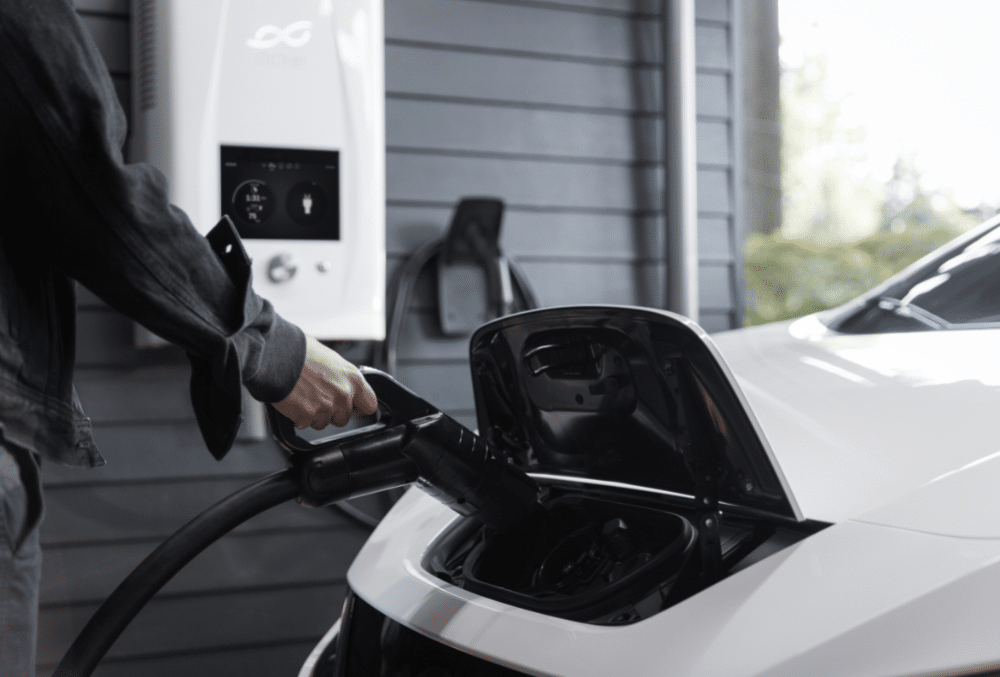Who Will Be King of Electric Vehicles? Tesla or a New Leader?
June 22, 2022
Tesla has been King of the U.S. electric vehicle market for years now, and according to Kelly Blue Book’s first-quarter registration data for 2022, their status is still firmly in place. The first quarter of 2022 shows that Americans doubled their purchases of electric cars, as compared to the first quarter of 2021. These new stats confirm that, for the first time, 5% of total car sales were electric vehicles. While several competitors have released promising electric vehicles, Tesla has remained dominant, with 75% of the EV market belonging to them. These promising sales in the EV market have only increased the number of Tesla vehicles out on the road. However, how long can this last? How are Tesla’s competitors fighting for a more significant piece of the market?
Why is Tesla an Industry Leader?
Tesla has been an innovative powerhouse within the automotive industry for years. With a great head start in the electronic vehicle market and technology, Tesla overtook a budding marketplace and made its own. Tesla began offering electric cars to potential buyers years before their competitors, notably having four different EV variations before other auto manufacturers produced their first electric vehicles. However, it would be safe to say that Tesla’s competition grows every day.
In 2020, Tesla’s electric vehicles accounted for a colossal 79% of the new electric vehicles registered in the United States. Last year, in 2021, Kelley Blue Book’s data showed that Tesla’s percentage of new cars registered was 69.95%. Although Tesla experienced a dip in its market control, nearly 70% of EV registrations is nothing to scoff at, especially when you consider the ever-increasing demand for electric vehicles. However, Tesla’s market share has been boosted back up to an impressive 75% after delivering 310,048 cars between January and March.
Some may argue that Tesla’s undeniable success in the electric automotive market can be attributed to beating its competitors to the punch. The truth is that Tesla’s electric vehicles are far more advanced when compared to vehicles produced by other manufacturers. The progressive and semi-futuristic design and features help Tesla vehicles seem more alluring to potential car buyers who may be on the fence about making the switch to electric. Now, after years of being the prominent industry leader, Tesla may finally start seeing some serious competitors entering the market.
Top 9 Electric Vehicles Sold in the U.S. In 2022’s First Quarter:
- Tesla Model Y
- Tesla Model 3
- Ford Mustang Mach-E
- Tesla Model X
- Hyundai Ioniq 5
- Kia EV6
- Tesla Model S
- Kia Niro
- Audi E-Tron
Which Electric Vehicles Are Some of Tesla’s Biggest Competitors?
While Tesla maintains its firm hold on the EV market, other electric cars are quickly making a name for themselves and moving up the industry ladder. For example, the Hyundai Ioniq 5 was recently awarded the title of 2022 World Car of the Year. The Ioniq 5’s stylish design and 800-volt architecture system make all the difference when compared to Tesla, whose 400-volt system charges slower than the Ioniq 5.
As time progresses, the EV market is beginning to see the introduction of new types and styles of electric cars. Electric pickup trucks have officially entered the market, and they promise a fresh wave of interest in the EV market to a previously untapped demographic. In 2022, the GMC Hummer EV and the Rivian R1T were both released as electric trucks, and Ford is reportedly nearing the completion of their F-150 Lightning truck. While none of these trucks have hit record sales yet, their release is an indicator of market change. Electric cars are no longer just sporty sedans for a small population.
How Does Tesla Plan to Combat the Evolving Electric Vehicle Market?
Tesla has always been a leading name in innovation, and they have shown its ability to adapt to an evolving market. Next year in 2023, Tesla plans to move their Cybertruck, Semi, and Roadster into production. These upcoming Tesla electric vehicles will combat the new wave of electric trucks and SUVs that will soon be joining the EV market.
Tesla does not just have the top place in the U.S. electric car industry, but the global one as well. Last year, Tesla held a global electric vehicle market share of 13.84%, closely followed by Volkswagen’s 11.28%. Tesla’s global company goal for 2022 is to produce 1.5 million electric vehicles, which is no simple task. However, Tesla has already overcome production obstacles in 2022. The first quarter of this year showed Tesla predominantly leading market shares, despite ongoing supply chain issues. Tesla’s first-quarter success is also impressive when you consider how its Giga Shanghai production plant was forced to temporarily close its doors due to the spread of COVID-19 among its employees.
Final Thoughts
Electric vehicles are a promising step forward in innovation and efficiency, one which our planet and wallets can someday benefit from. While they may come with a hefty initial price tag, the environmental and future money-saving potential that electric cars can offer is apparent. Electric vehicles are emission-free, which means they do not produce or release harmful emissions into our air, therefore reducing the amount of CO2 and other greenhouse gases. Electric vehicles are also eligible for tax incentive programs and government grants, which can ease the question of affordability. Also, with the ever-growing cost of gas, charging your car has never sounded better.
If you have questions about the benefits of electric vehicles and how they can help your auto insurance rates, please contact our experts at Duliban Insurance. Our friendly and professional agents look forward to assisting you with any questions you may have.











